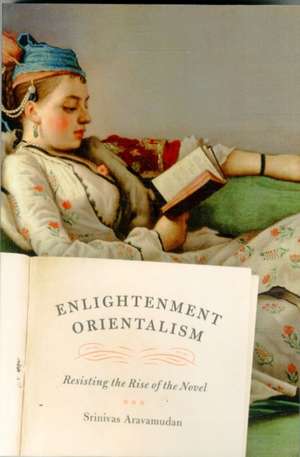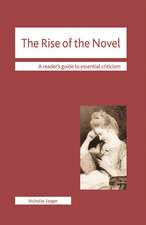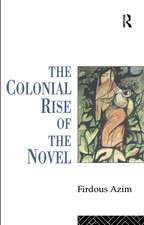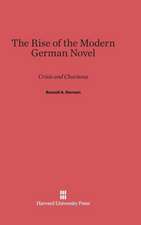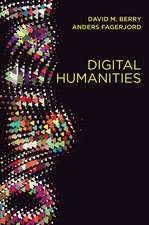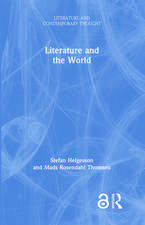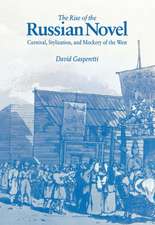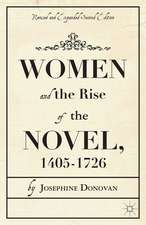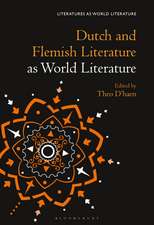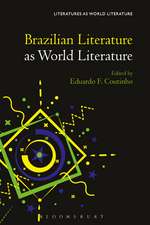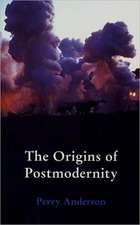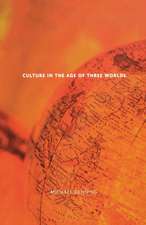Enlightenment Orientalism: Resisting the Rise of the Novel
Autor Srinivas Aravamudanen Limba Engleză Paperback – 8 dec 2011
| Toate formatele și edițiile | Preț | Express |
|---|---|---|
| Paperback (1) | 300.79 lei 6-8 săpt. | |
| University of Chicago Press – 8 dec 2011 | 300.79 lei 6-8 săpt. | |
| Hardback (1) | 665.48 lei 6-8 săpt. | |
| University of Chicago Press – 8 dec 2011 | 665.48 lei 6-8 săpt. |
Preț: 300.79 lei
Nou
57.56€ • 59.47$ • 47.91£
Carte tipărită la comandă
Livrare economică 25 martie-08 aprilie
Specificații
ISBN-10: 0226024490
Pagini: 360
Ilustrații: 13 halftones
Dimensiuni: 152 x 229 x 23 mm
Greutate: 0.48 kg
Editura: University of Chicago Press
Colecția University of Chicago Press
Notă biografică
Cuprins
Acknowledgments
Part 1 Pseudoethnographies
1 Fiction/Translation/Transculturation
Marana, Behn, Galland, Defoe
2 Oriental Singularity
Montesquieu, Goldsmith, Hamilton
Part 2 Transcultural Allegories
3 Discoveries of New Worlds, Talking Animals, and Remote Nations
Fontenelle, Bidpai, Swift, Voltaire
Prévost, Crébillon, Diderot
Manley, Haywood, Sheridan, Smollett
Conclusion: Sindbad and Scheherezade, or Benjamin and Joyce
Notes
Bibliography
Index
Recenzii
Descriere
Srinivas Aravamudan here reveals how "Oriental" tales, pseudo-ethnographies, sexual fantasies, and political satires took Europe by storm during the eighteenth century. Naming this body of fiction "Enlightenment Orientalism", he poses a range of urgent questions that uncovers the interdependence of "Oriental" tales and domestic fiction, thereby challenging standard scholarly narratives about the rise of the novel. More than mere exoticism, "Oriental" tales fascinated ordinary readers as well as intellectuals, taking the fancy of philosophers such as Voltaire, Montesquieu, and Diderot in France, and writers such as Defoe, Swift, and Goldsmith in Britain.
Aravamudan shows that "Enlightenment Orientalism" was a significant movement that criticized irrational European practices even while sympathetically bridging differences among civilizations. A sophisticated reinterpretation of the history of the novel, "Enlightenment Orientalism" is sure to be welcomed as a landmark work in eighteenth-century studies.
